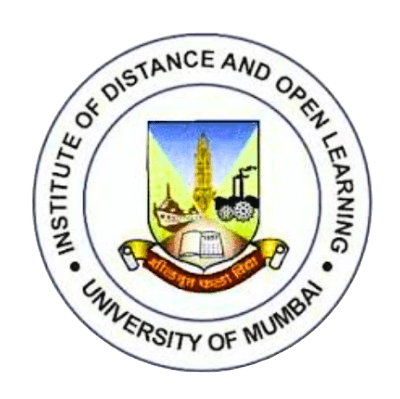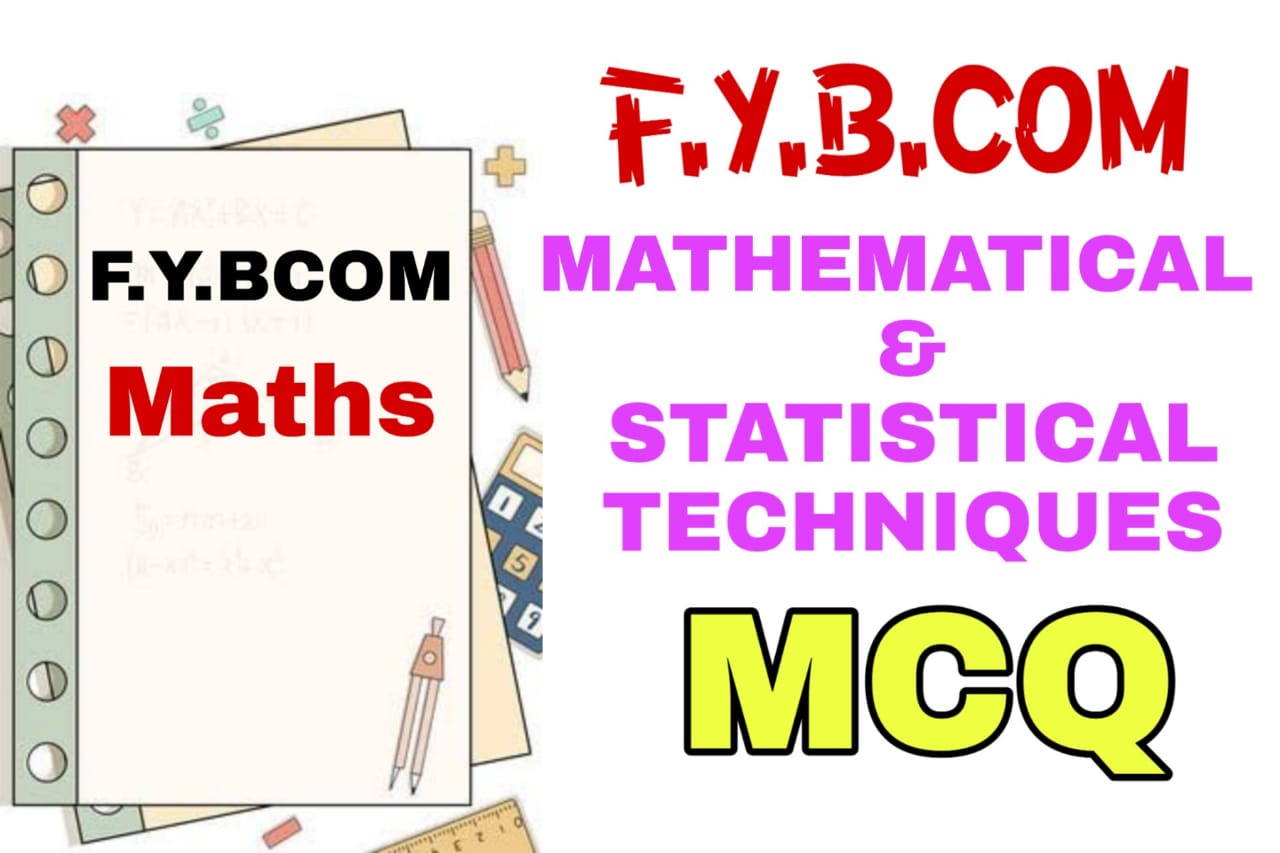YOUTUBE
CHANNEL: MUMBAI UNIVERSITY IDOL
Mathematical and Statistical
Techniques
F.Y.B.COM
IMPOERANCE
MCQ QUESTION BANK
1. Coefficient of correlation explains
…………………….of the relationship between two variables.
a. Degree
b. Direction
c. Both of the above
d. None of the above
ANSWERS: C
2. For perfect correlation, the coefficient of
correlation should be ……………………..
a. ± 1
b. + 1
c. – 1
d. 0
ANSWERS: A
3. Rank correlation coefficient was discovered
by………………………………
a. Fisher
b. Spearman
c. Karl Pearson
d. Bowley
ANSWERS: B
4. The rank correlation coefficient is
always……………………….
a. + 1
b. – 1
c. 0
d. Between + 1 and – 1
ANSWERS: D
5. Spearman’s Rank Correlation Coefficient is
usually denoted by………………..
a. k
b. r
c. S
d. R
ANSWERS: D
6. Probable error is used to:
a. Test the reliability of correlation coefficient
b. Measure the error in correlation coefficient
c. Both a an b
d. None of these
ANSWERS: A
7. If coefficient of correlation is more than
…………….of its P E, correlation is significant.
a. 2 times
b. 5 times
c. 6 times
d. 10 times
ANSWERS: C
8. In correlation analysis, Probable Error =
…………………… x 0.6745
a. Standard deviation
b. Standard error
c. Coefficient of correlation
d. None of these
ANSWERS: B
9. Coefficient of concurrent deviation depends
on …………………..
a. The signs of the deviations
b. The magnitude of the deviations
c. Bothe a and b
d. None of these
ANSWERS: A
10. Correlation analysis between two sets of
data only is called………………..
a. Partial correlation
b. Multiple correlation
c. Nonsense correlation
d. Simple correlation
ANSWERS: D
11. Correlation analysis between one dependent
variable with one independent variable by keeping the other independent
variables as constant is called………………….
a. Partial correlation
b. Multiple correlation
c. Nonsense correlation
d. Simple correlation
ANSWERS: A
12. Study of correlation among three or more
variables simultaneously is called………….
a. Partial correlation
b. Multiple correlation
c. Nonsense correlation
d. Simple correlation
ANSWERS: B
13. If r = 0.8, coefficient of determination
is……………………………….
a. 80%
b. 8%
c. 64%
d. 0.8%
ANSWERS: C
14. If r is the simple correlation coefficient,
the quantity r2 is known as ……………….
a. Coefficient of determination
b. Coefficient of non-determination
c. Coefficient of alienation
d. None of these
ANSWERS: A
15. If r is the simple correlation coefficient,
the quantity 1 — r2 is known as ……………….
a. Coefficient of determination
b. Coefficient of non-determination
c. Coefficient of alienation
d. None of these
ANSWERS: B
16. The term regression was first used
by……………………..
a. Karl Pearson
b. Spearman
c. R A Fisher
d. Francis Galton
ANSWERS:D
17. ………………..refers to analysis of
average relationship between two variables to provide mechanism for prediction.
a. Correlation
b. Regression
c. Standard error
d. None of these
ANSWERS:B
18. If there are two variables, there can be at
most…………………………. number of regression lines.
a. One
b. Two
c. Three
d. Infinite
ANSWERS: B
19. If the regression line is Y on X, then the
variable X is known as……………………..
a. Independent variable
b. Explanatory variable
c. Regressor
d. All the above
ANSWERS: D
20. Regression line is also called……………………………
a. Estimating equation
b. Prediction equation
c. Line of average relationship
d. All the above
ANSWERS: D
21. If the regression line is X on Y, then the
variable X is known as……………………..
a. Dependent variable
b. Explained variable
c. Both a and b
d. Regressor
ANSWERS: C
22. If the regression line is X on Y, then the
variable X is known as……………………..
a. Dependent variable
b. Independent variable
c. Bothe a and b
d. None of the above
ANSWERS: A
23. If the regression line is Y on X, then the
variable X is known as……………………..
a. Dependent variable
b. Independent variable
c. Both a and b
d. None of the above
ANSWERS: D
24. The point of intersection of two regression
lines is……………………..
a. (0,0)
b. (1,1)
c. (x,y)
d. (x̄, ӯ)
ANSWERS: D
25. If r = ± 1, the two regression lines
are………………………….
a. Coincident
b. Parallel
c. Perpendicular to each other
d. None of these
ANSWERS: A
If You Need Most Importance MCQ PDF Mathematical Question Bank Than Pay Rs 100 Only
Contact 8652719712 / 8779537141
Join Telegram Group
F.Y.B.COM Other Subject MCQ
FINANCIAL MANAGMENT F.Y.B.COM MCQ PDF
https://www.surajpateleducation.com/2020/12/financial-managment-fybcom-mcq-pdf.html
BUSINESS COMMUNICATION F.Y.B.COM MCQ PDF
https://www.surajpateleducation.com/2020/12/business-communication-fybcom-mcq-pdf.html
F.Y.B.COM Mathematical and Statistical Techniques MCQ PDF
https://www.surajpateleducation.com/2021/01/fybcom-mathematical-and-statistical.html
F.Y.B.Com Commerce MCQ PDF
https://www.surajpateleducation.com/2021/01/fybcom-commerce-mcq-pdf.html

